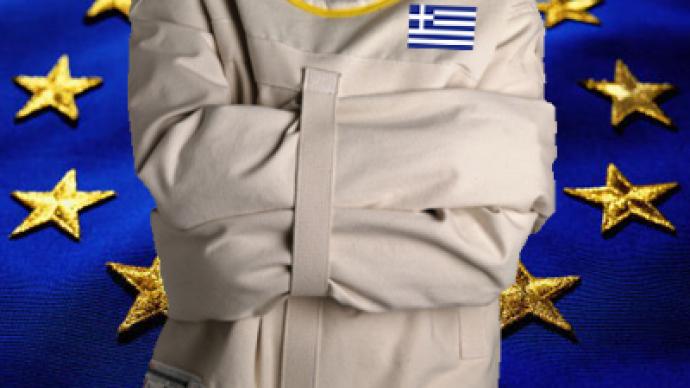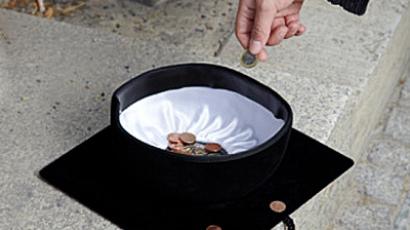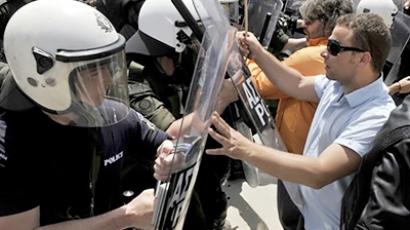Greece struggles in straitjacket of eurozone

As European officials prepare the next slice of Greece's bailout, the European Central Bank and the German government are arguing over how to get private investors to contribute.
Just one year after the first payment, the next stage comes with conditions calling on Athens to implement even stricter austerity measures – something that brought Greeks to the streets to express their anger.Greece, which has become the poster child of the debt crisis, is struggling to stay afloat. The bailout money comes with tough conditions, and public unhappiness has been mounting over the last year. Now the country’s government will have to deal with a new series of austerity measures that have to be implemented if the country wants to continue receiving bailout money.The public unhappiness has become especially understandable given recently released figures. Some 16 percent of the Greek workforce and 42 percent of 15-24 year olds are out of work.Sotiris Panagiotis, a lecturer at the University of the Aegean, says that the only effect these measures are going to have is to make things worse.“For the past year, Greece has been facing a social disaster,” he told RT. “It’s an austerity program unseen before in Greece, which has only resulted in a sharp deterioration of living standards, extreme rise of unemployment, and a very deep recession. And the new program, the middle-term program they are proposing now, is just going to make things worse.”“I think that Greece being a part of the eurozone is a contributing factor to the problem,” Panagiotis added. “The eurozone is like a monetary straitjacket. It’s completely irrational when you [combine] countries with different productivity levels [and] different competitiveness within the same [currency].”















